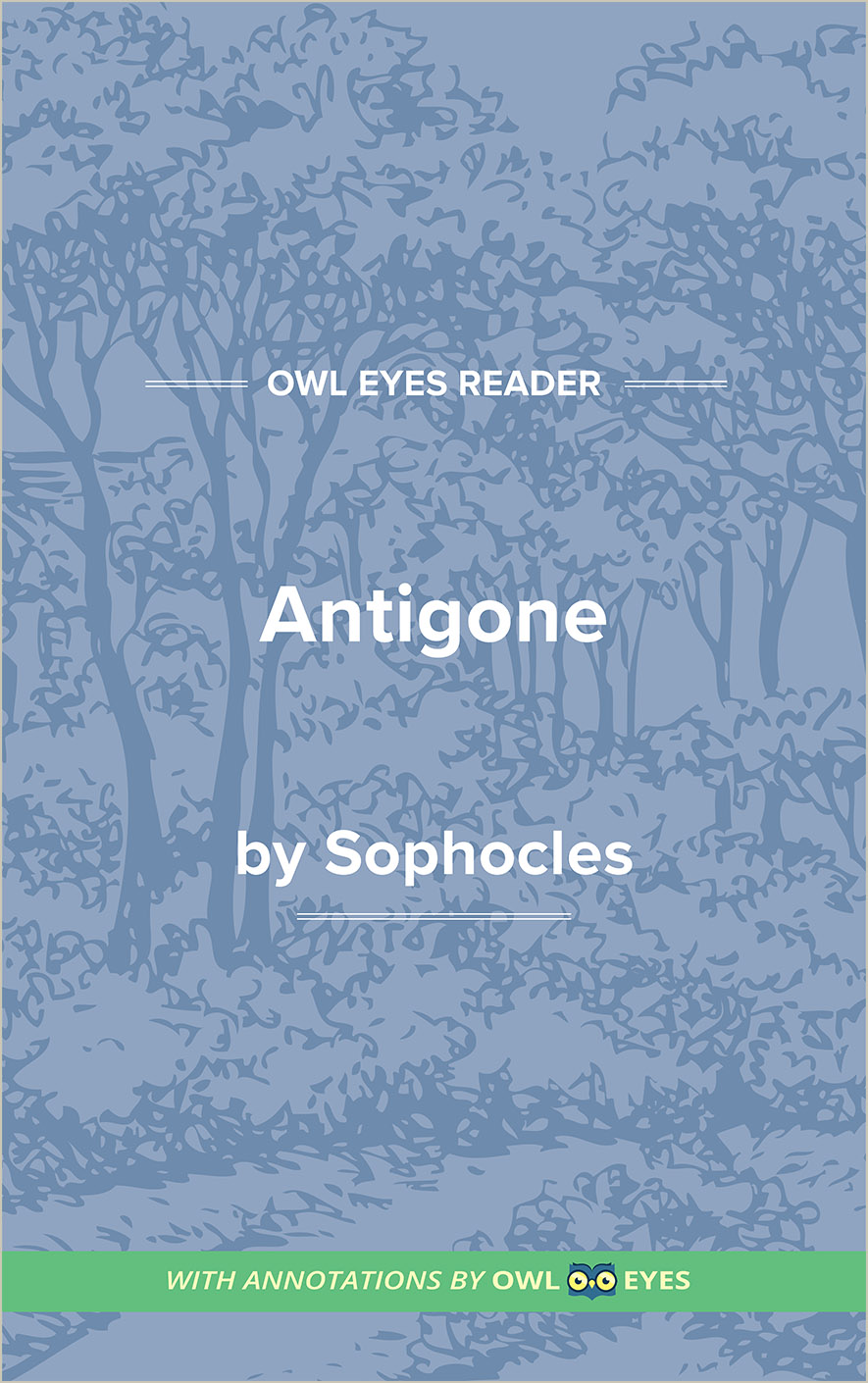Analysis Pages
Character Analysis in Antigone
Antigone: Sophocles introduced Antigone as Oedipus’s daughter in Oedipus the King. However, in Oedipus the King Antigone remains a relatively minor character. In Antigone, she becomes the protagonist who drives the action. She is strong-willed and devoted to her family. When Creon rules that her brother Polyneices shall not be buried, Antigone refuses to obey. In fact, Antigone believes that the laws of the gods far outweigh the laws of mankind.
Creon: Creon is a tyrant that rules over Thebes. In contrast to Antigone, Creon believes the "rational" laws of man are superior to the "irrational" laws of the gods. Creon stands by this belief even in the face of strong opposition. It is this stubbornness that proves to be Creon’s tragic flaw. However, Creon does become less tyrannical as the narrative progresses.
Tiresias: Tiresias is a blind prophet. Although he cannot physically see, he can "see," or foretell, the future. Tiresias attempts to tell Creon that the gods are angry with him because Creon rejects divine law. However, Creon does not believe Teiresias until it is too late to avert the oncoming tragedy.
Character Analysis Examples in Antigone:
Antigone
🔒"For kites to scent afar and swoop upon...." See in text (Antigone)
"'Tis thus I argue. Had it been a husband dead I might have wed another, and have borne Another child, to take the dead child's place. But, now my sire and mother both are dead, No second brother can be born for me...." See in text (Antigone)
"Talk not of rights; thou spurn'st the due of Heaven ..." See in text (Antigone)
"Now if she thus can flout authority Unpunished, I am woman, she the man...." See in text (Antigone)
"Elders, the gods have righted one again Our storm-tossed ship of state, now safe in port...." See in text (Antigone)
"Have thine own way then; 'tis a mad endeavor, Yet to thy lovers thou art dear as ever...." See in text (Antigone)
"What right has he to keep me from my own? ..." See in text (Antigone)
"Wilt thou persist, though Creon has forbid? ..." See in text (Antigone)

